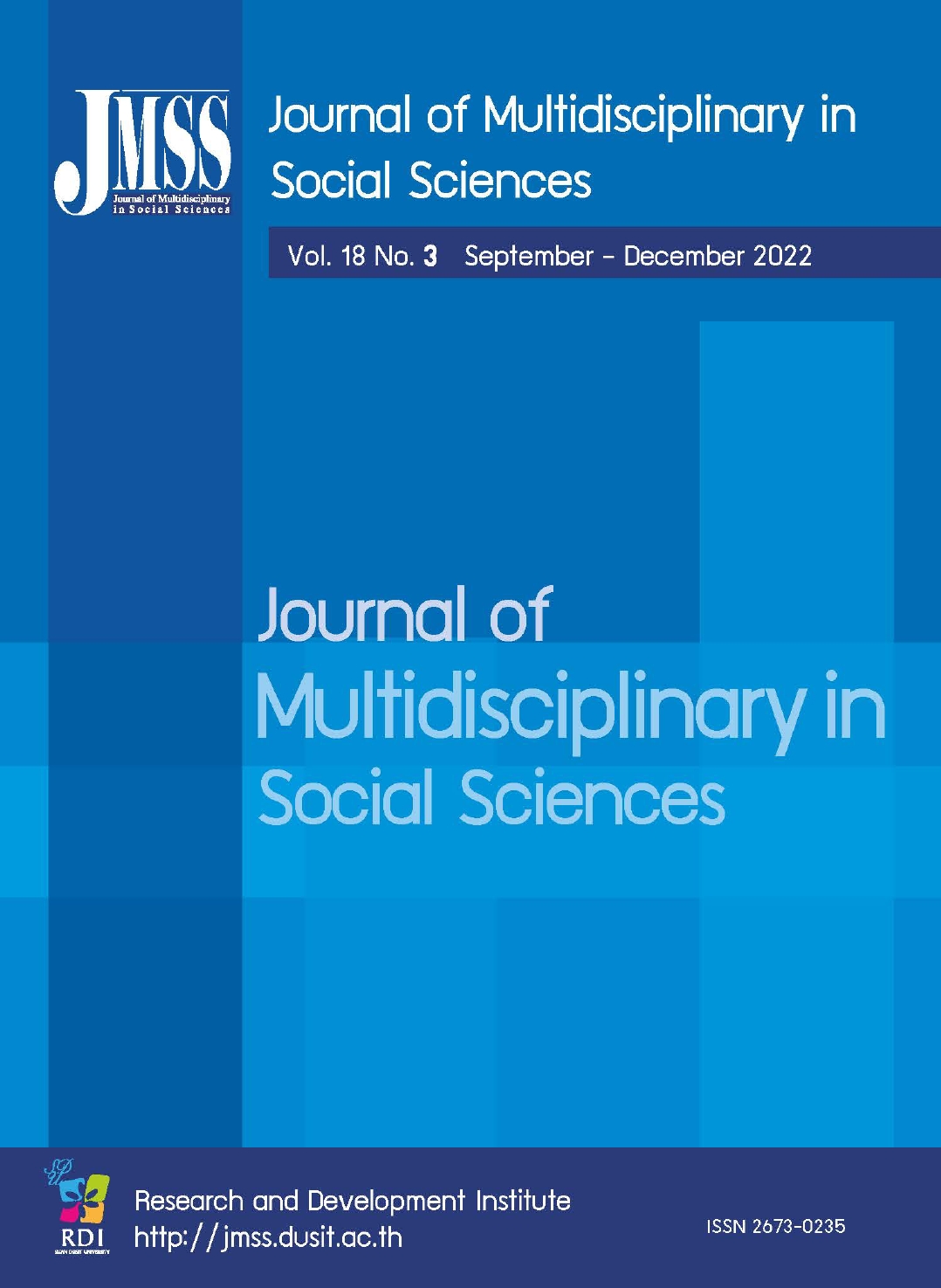King Mongkut’s Political Stability during the Era of Colonialism
Keywords:
Political stability, Colonialism, King MongkutAbstract
The objectives of the research were: 1) to examine the factors affecting political stability during King Mongkut’s reign and 2) to investigate strategies King Mongkut established for political stability during the influence of colonialism. The study was conducted as qualitative research by gathering data from documentary research and in-depth interviews. The documents consisted of primary documents which included chronicles, royal documents and announcements, and the secondary documents which included research, book and articles. In-depth interviews were conducted with 10 informants who are historians and political scientists. The data were interpreted and analyzed descriptively.
The results revealed that: 1) the factors affecting political stability of King Mongkut included external and internal factors. External factors included the spread of British and French influence into the regions and territories which affected the stability of the Kingdom of Siam and the King. The internal factors included the outdated governance which weakened the royal power of the monarch, the power and influence of the Bunnag family who controlled large amounts of people and forces, and the royal power of the King’s younger brother who was popular with the Siamese citizens and foreigners. 2) King Mongkut implemented strategies in order to establish his political stability which consisted of building political acceptance to gain civil support and international acceptance. As well as managing effectively in politics and tensions by implementing coordinated policy towards Western nations demands and threats. As a result of the royal actions, the Kingdom of Siam was able to maintain its independence without being occupied by Western powers, and the King securely reigned the country until the end of his life.
References
Auslin, Michael R., (2004). Negotiating with Imperialism: The Unequal Treaties and the Culture of Japanese Diplomacy. Cambridge: Harvard University Press.
Bamrungsuk, Sukanya. (1982). The authority and role of Samuha Phra Kalahom during the Ratanakosin period. Thesis of Master of Arts Program. Chulalongkorn University.
Bogdanor, Vernon (1997). The Future of Constitutional Monarchy, The Monarchy and the Constitution. Oxford, Oxford Academy.
Chandler, David P. (1992). History of Cambodia. Boulder, CO: Westview Press.
Chandransu, Tongthong.(2010).The Political View of King Rama IV on the Institution of Monarchy. Master of Political Science, Sukhothai Thammathirat Open University.
Dhiravekin, Likit. (2004). Theory of political development. Bangkok: Thammasat University.
Hoffman, Philip T. (2015). Why Did Europe Conquer the World? Princeton, Princeton University Press.
Huntington, Samuel P. (1965). “Political Development and Political Decay.” World Politics. 17 (3), 386–430.
Imkiat, Suwinya. (2009). Westernizing Changes in Thai Society During the Reign of King Rama TV (1851- 1868). Master of Art, Ramkhamhaeng University.
Ingram, James C (1971). Economic Change in Thailand 1850- 1970. Palo Alto: Stanford University Press.
Kongchan, Therdpong (2004). Politics in establishment of King Mongkut. Bangkok: Matichon.
Lasswell, Harold D. (1936). “Politics: Who Gets What, When, How”. American Political Science Review, 30 (6), 1174 -1176
Lipset, Seymour Martin. (1964). Political Man. London: Mercury books. Mann, Michael States. (1977). Ancient and Modern. European Journal of Sociology. 18 (2), 262–298.
Meephonkij, Sara. (2012) His Majesty King Mongkut's Initiations and Accomplishments in the preservation, development, and transference of knowledge. Degree of Philosophy Program in Education’s Dissertation, Chulalongkorn University.
Miljkovic, Dragan, and Rimal, Arbindra. (2008). “The impact of socio-economic factors on political instability: A cross-country analysis.” The Journal of SocioEconomics .37(6), 2454-2463.
Mittiga, Ross (2021). “Political Legitimacy, Authoritarianism, and Climate Change.” American Political Science Review. 116 (3), 998–1011.
Nana, Krairerk (2008). King Mongkut and western colonial powers. Bangkok: Matichon
Plaiynoi, S. (2001). His Majesty King Mongkut, King of Siam. Bangkok: Pimkham.
Sattayaburak, Attachak. (1988). The transformation of historical consciousness and the changes in Thai society from the reign of King Mongkut to 1932 A.D. Thesis of Master of Arts Program. Chulalongkorn University.
Sereerangsan, Teerapat. (2018). “The Mix of Four Regimes: Monarchy, Bureaucratic Polity, Plutocracy, and Democracy.” King Prajadhipok's Institute Journal. 16 (1), 5-21.
Sikoa, Kornkamol (2006). “His Majesty King Mongkut in protecting Siam from Western imperialism.” Chulachomklao Royal Military Academy journal. 4(1), 12-32.
Veracini, Lorenzo (2010). Settler Colonialism: A Theoretical Overview. New York: Palgrave Macmillan.
Downloads
Published
How to Cite
Issue
Section
License

This work is licensed under a Creative Commons Attribution-NonCommercial-NoDerivatives 4.0 International License.








